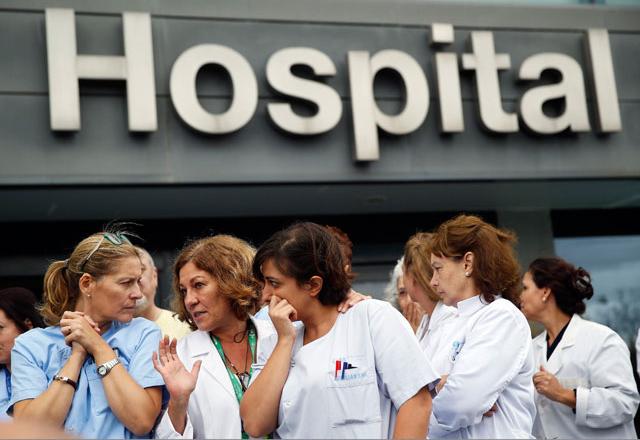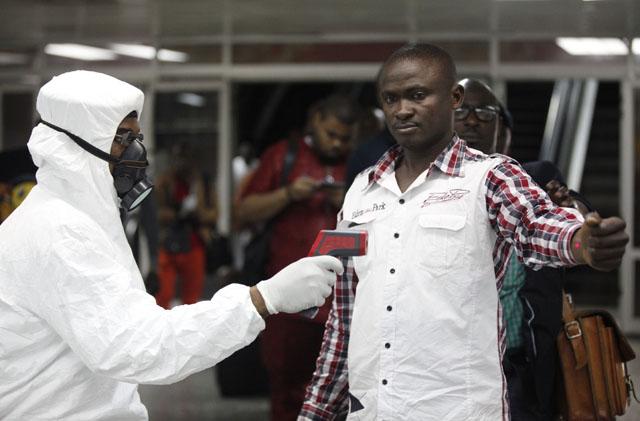You are here
Young people more likely to survive Ebola
By AP - Nov 02,2014 - Last updated at Nov 02,2014
Who survives Ebola and why? Health workers treating patients in Sierra Leone, including some who died doing that work, have published the most detailed report yet on medical aspects of the epidemic. The research suggests young people are less likely to perish, fever is the most common symptom when victims first seek care, and early help is crucial.
The report, published online Wednesday by the New England Journal of Medicine, is from 47 doctors, nurses and others who cared for 106 patients at Kenema Government Hospital in Sierra Leone, one of the West African countries hardest hit by the Ebola epidemic.
Their work adds new knowledge about the disease, which has killed more than 5,000 since early this year, the largest outbreak ever of Ebola, said one study leader, Dr John Schieffelin, an infectious diseases specialist from Tulane University School of Medicine.
In particular, it shows the advantage of youth — the fatality rate was only 57 per cent for patients under 21, but a whopping 94 per cent for those over 45.
“They’re more resilient and younger and tougher,” Schieffelin said.
“This is definitely the most detailed analysis” of symptoms and factors related to survival, he added.
One striking factor was how devastating the severe diarrhoea is from the disease.
“It requires a lot of intensive fluid therapy,” and replacement of body salts called electrolytes, to help people survive, he said.
Key findings:
— It can be hard even in an outbreak setting to tell who has Ebola. Of the 213 people initially tested for signs of a haemorrhagic fever, about half, or 106, turned out to have Ebola.
— The estimated incubation period was 6 to 12 days, similar to what has been seen elsewhere in this outbreak.
— Fever was the most common symptom — 89 per cent had it when diagnosed. Other symptoms were headache (80 per cent), weakness (66 per cent), dizziness (60 per cent), diarrhoea (51 per cent), abdominal pain (40 per cent) and vomiting (34 per cent). Only one patient had bleeding, one of the most gruesome symptoms, but researchers say other cases may have been missed through incomplete record-keeping. Patients with weakness, dizziness and diarrhoea were more likely to die.
— Those with more virus in their blood when they sought medical care, indicating more advanced infections, were more likely to die than those who got help when their illness was less far along.
Seven of the 47 study authors died — six of them from Ebola and one from a stroke. They included Dr Sheikh Humarr Khan, a doctor who led Sierra Leone’s battle against Ebola until his death in July.
Related Articles
Spain was investigating Tuesday how a nurse in Madrid could have become infected with Ebola, sparking fears of the first outbreak outside Africa.
Guinea has declared a public health emergency over an Ebola epidemic that has killed more than 1,000 people in three West African states and is sending health workers to all affected border points, a government official said.
Nigeria became the latest country to declare a national emergency over the deadly Ebola virus on Friday, as the World Health Organisation (WHO) called the epidemic that has claimed nearly 1,000 lives a global health crisis.













